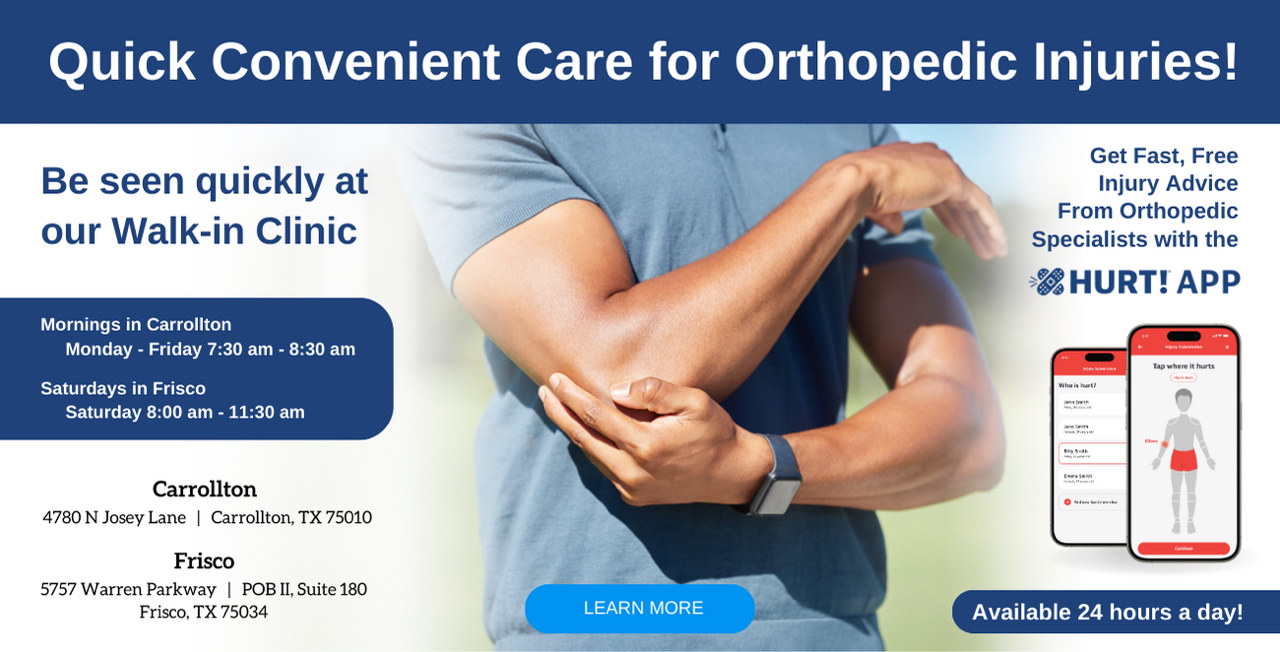The rotator cuff refers to a group of tendons responsible for stabilizing the shoulder joint by connecting to the four muscles that move this joint in all directions. Rotator cuff syndrome occurs when this group of tendons is damaged in any way, affecting the mobility of the shoulder joint. This is one of the most common causes of shoulder pain, and can be caused by repetitive strain or acute injury. OrthoTexas is a group of orthopedic experts in North Texas, providing treatment for various disorders including rotator cuff syndrome.
Causes:
Trauma: A fall on the shoulder, especially in the elderly, can lead to the development of rotator cuff due to the tearing of the tendons.
Shoulder dislocation Congenital abnormality in the acromion: Some people have a dip at the acromion’s tip, which makes it more likely for them to experience an impingement of the rotator cuff even at a slight degree of use.
Overuse: This is the most common cause of the syndrome in young people. It is commonly witnessed in sportspersons or people with occupations like weight training or decorating, which involve excessive use of the shoulder joint.
Diagnosis: If you experience shoulder pain immediately following an injury, or develop sudden shoulder pain that worsens when you move the arm outward from your body, you should visit one of the OrthoTexas’s locations, to get yourself diagnosed for rotator cuff syndrome. The doctor will first observe whether the intensity of pain increases with certain movements of the shoulder. This is indicative of local inflammation and swelling in the rotator cuff tendons. Another common sign of rotator cuff syndrome is falling of the arm when moved away from the body. Radiology testing, such as an X-ray examination, is performed to identify any bony injuries. An arthrogram involving the injecting of contrast dye is used to detect leakage from the rotator cuff. An MRI can be performed for further diagnosis, to identify any other accompanying conditions.
Treatment: Ice, rest, and anti-inflammatory medications are sufficient to provide relief in certain cases of the rotator cuff. We provide physical therapy and gradual exercise rehabilitation to patients suffering from rotator cuff syndrome. Cortisone injections in the rotator cuff are recommended for patients with persistent pain and motion limitations. Rare cases of rotator cuff syndrome might require surgical repair such as subacromial decompression.


